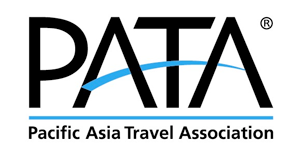Players in the tourism sector have urged the government to move quickly to regulate short-term rental accommodations (STRA).
Dr. Sri Ganesh Michiel, national president of the Malaysia Budget and Business Hotel Association (MyBHA), emphasized the necessity of swiftly implementing STRA to regain travelers' trust in our tourism sector.
According to Sri Ganesh, "the government's failure to take stern action against all these kinds of unregulated businesses has tarnished the country's tourism image."
He was referring to the recent incident in which a Chinese couple questioned the safety of Malaysia as a tourist destination after discovering a hidden camera in a power outlet in their Airbnb.
Sri Ganesh revealed that despite the tourism industry's protracted wait—which has already lasted close to seven years—for the implementation of STRA legislation, nothing good has come of it.
Instead, a slew of terrible situations involving foreign tourists have defined it, including the most recent hidden camera scandals and a conflict in Genting Highlands where the host has accused tenants of leaving the property filthy.
The reputation of our tourism business was tarnished when problems with short-term rental accommodations forced the entire industry to bear the burden of their devastating effects.
He criticized the government, saying, "Our government is not taking any action to regulate these kinds of businesses, nor to stop the dissemination of negative images of our tourism industry at the international level."
Sri Ganesh advised travelers to only select lodgings that are formally registered, licensed and ensured to be secure for occupancy.
In sharp contrast to short-term rental properties, which raise several security issues, the entire hotel management chain demonstrates a clear and organized structure as the authorities would come and inspect once every three years, he claimed.
In a regulated environment, Sri Ganesh said, hotel management would run background checks on every staff, and visitors would have to register themselves using their ID cards or passports upon check-in.
"Under those conditions, it is simpler for the hotel management to track down any issues that might develop.
Would people still want to take the chance of hiding cameras in hotel rooms knowing that they would be immediately discovered given that the hotel has access to all information?
"Hoteliers and trained employees check the state of everything in the hotel room during
said.
In addition, Sri Ganesh emphasized that there are no regulations governing the short-term rentals that are being provided on numerous websites run by online travel agencies, including Airbnb, Agoda, Booking.com, and Traveloka.
"The public should understand that being offered on travel agency platforms does not necessarily mean the accommodation is licensed and regulated," he stressed.
Finding out who owns these unregistered, unregulated short-term rental properties is quite difficult for travelers. The person in charge of the rental business could be the home's owner, an agent, or even a tenant. If something goes wrong, there is no obvious person to contact.
The tourists are at risk just by not knowing who owns the residence they are staying in, said Sri Ganesh.
Sri Ganesh suggested that instead of being a "peeping tom," property owners themselves may set up covert cameras to guard their buildings from potential vandalism.
"Property owners might worry about the theft or vandalism of their possessions, such as televisions and other electrical gadgets. In contrast to hotels, there is no one on-site to check on the state of these short-term rental properties, which is why this is the case.
He went on to say that the Malaysian regulatory authority does not have the required registration for Booking.com, Agoda, or Airbnb.
The majority of the platforms mentioned operate call centers or simply provide the most fundamental services in Malaysia, he claimed.
Sri Ganesh expressed his concerns about the government's capacity to address problems encountered by tourists on foreign-operated platforms, particularly because, except for Penang, the country still lacks appropriate rules.
It's important to note that in May of this year, the Penang state government issued legislation regarding short-term vacation rentals, such as Airbnb units. The move has been praised by hoteliers.
Shaharuddin M. Saaid, executive director of the Malaysian Association of Hotel Owners, echoed Sri Ganesh's call for the immediate closure of unregistered and unregulated short-term rental properties.
"For their safety, it is crucial to urge visitors to check the status of their lodging, whether it be in hotels, hostels, or privately owned buildings like condominiums or residences.
"Necessary actions are required to effectively regulate and enforce STRA for unlicensed accommodations, to guarantee the safety and privacy of guests," he stressed.
Amanpreet Bajaj, general manager of Airbnb's operations in India, Southeast Asia, Hong Kong, and Taiwan, emphasized that in reaction to the hidden camera incident, the company's security team has taken action by suspending the homestay operator's account and listings.
"We forbid hidden cameras, so hearing about this occurrence made us sad. Amanpreet Bajaj
and listings while we conduct an inquiry.
Further expressing his shock over the incident, he emphasized that such behavior is categorically forbidden within the Airbnb community.
Although safety incidents are uncommon on Airbnb, he added, "We take reports like these seriously and have been helping our guests."
- TAGS / KEYWORDS:


















.png)














